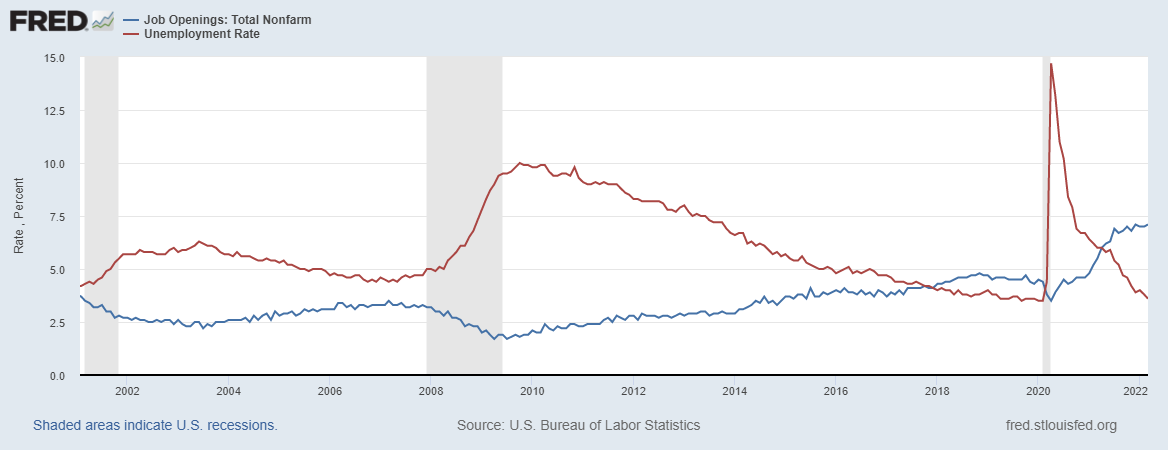We live in interesting times.
This is true whether considering the technology available to the average person or the variety of news events driving change around the world.
There is war and famine alongside levels of comfort unimaginable just 50 years ago — and discoveries that could make our quality of life even better.
Interesting times are also evident in economic data.
One example is in the chart below, which compares the percentage of job openings (the blue line) and the unemployment rate (in red).
20 Years of Unemployment vs. Job Openings

Source: Federal Reserve.
We would expect the unemployment rate to be higher than the job opening rate. This data series only goes back to 2001. The gap between unemployment and job openings narrowed as the economy headed into recession.
This makes sense. Companies stop hiring as the economy turns down, and the jobless rate is usually at a business-cycle low before a recession.
But the relationship between the two should hold in normal economies. There should be more unemployed people than job openings or inflation can take hold.
More Unemployed the Cause or Cure for Inflation?
Employers forced to pay higher wages to attract the few unemployed will create more inflation.
In 2018, the data flipped. Inflationary pressures started building. Then came the pandemic.
Policymakers focused on that and ignored the inflation trend that had been building for years. As pandemic pressures eased, inflation returned.
This chart shows the pain we will experience as the Federal Reserve tries to get inflation under control. Policies need to increase the number of the unemployed relative to the number of job openings.
That can be done by either creating millions of jobs or creating millions of unemployed.
Bottom line: We all know which way that goes. As the Fed fights inflation, it will create millions of unemployed in the next few years. This chart will return to its historic pattern when the Fed wins that battle.
It’s painful. But it’s best to get over the pain quickly.
Click here to join True Options Masters.




